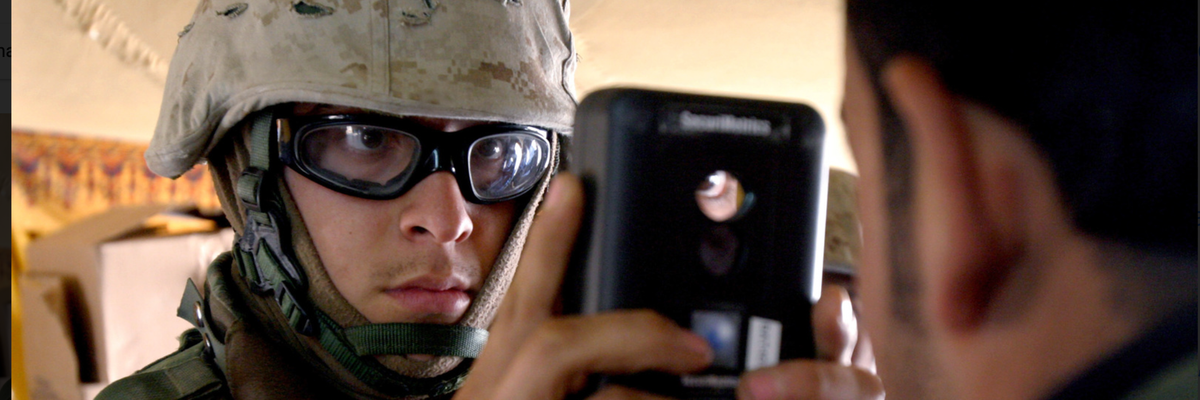The Intercept is reporting that the Taliban have seized U.S. military biometric devices which hold iris scans, fingerprints, and other data that can identify individuals who worked with American forces and other coalition partners. In other words, the very people who have targets on their backs and are already scrambling to get out of Afghanistan today.
The report, written by Ken Klippenstein and Sara Sirota, does not say how the devices (called HIIDE, or Handheld Interagency Identity Detection Equipment) were taken, but one U.S. military contractor knows what an incredible breach this could be, and how big the database is. “We processed thousands of locals a day, had to ID, sweep for suicide vests, weapons, intel gathering, etc.” the contractor explained. “[HIIDE] was used as a biometric ID tool to help ID locals working for the coalition.”
The Department of Defense did not respond to the Intercept’s request for comment.
The military was initially using the devices to screen terrorists and create a trove of names and info that they had planned to share with U.S. law enforcement agencies, according to the article. But we know their use went way beyond that, collecting personal data on innocent Afghans. While it is unclear whether the Taliban would have the proper tools to ultimately use the devices to access the database, an Army special forces veteran who spoke with the Intercept expressed concerns that they could get outside help. “The Taliban doesn’t have the gear to use the data but the ISI do,” the former Special Operations official said, referring to Pakistan’s spy agency, Inter-Services Intelligence.
“I don’t think anyone ever thought about data privacy or what to do in the event the [HIIDE] system fell into the wrong hands,” Welton Chang, chief technology officer for Human Rights First, himself a former Army intelligence officer, told the reporters. “Moving forward, the U.S. military and diplomatic apparatus should think carefully about whether to deploy these systems again in situations as tenuous as Afghanistan.”
This is a bit disingenuous. The U.S. military knows what happens when this information gets into the “wrong hands.” After it had used up the so-called “Sons of Iraq,” or “Sunni Awakening,” for the "surge" in 2007, the U.S. military handed over all of the biometric info for those allies to the Shia government of Prime Minister Nouri al Maliki.
At the time, U.S. Army Lt. Col. John Velliquette called the information, “a hit list if it gets in the wrong hands.”
Reportedly, Maliki pledged to assimilate the Sunni fighters into his ranks. But after the U.S. left, he did the opposite, swiping Sunni men off the streets, disappearing them into jails, and driving them into economic desperation. The growing Islamic State presence was able to exploit the situation, and the rest is history.
Given that this was 14 years ago maybe memories are short, but not likely. Losing control of these HIIDE devices, if true, illustrates a systematic, blatant disregard for the people the U.S. military is ostensibly there to help. Simply put, this isn’t the first time we’ve left partners out to dry.
















